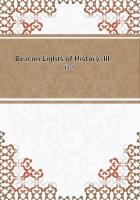THE very Tuesday morning on which Mr Johnson was going to show the fashions, the post-woman brought two letters to the house. I say the post-woman, but I should say the postman's wife. He was a lame shoemaker, a very clean, honest man, much respected in the town; but he never brought the letters round except on unusual occasions, such as Christmas Day or Good Friday; and on those days the letters, which should have been delivered at eight in the morning, did not make their appearance until two or three in the afternoon, for every one liked poor Thomas, and gave him a welcome on these festive occasions. He used to say, "He was welly stawed wi' eating, for there were three or four houses where nowt would serve 'em but he must share in their breakfast;" and by the time he had done his last breakfast, he came to some other friend who was beginning dinner; but come what might in the way of temptation, Tom was always sober, civil, and smiling; and, as Miss Jenkyns used to say, it was a lesson in patience, that she doubted not would call out that precious quality in some minds, where, but for Thomas, it might have lain dormant and undiscovered. Patience was certainly very dormant in Miss Jenkyns's mind. She was always expecting letters, and always drumming on the table till the post-woman had called or gone past. On Christmas Day and Good Friday she drummed from breakfast till church, from church-time till two o'clock - unless when the fire wanted stirring, when she invariably knocked down the fire-irons, and scolded Miss Matty for it. But equally certain was the hearty welcome and the good dinner for Thomas; Miss Jenkyns standing over him like a bold dragoon, questioning him as to his children - what they were doing - what school they went to; upbraiding him if another was likely to make its appearance, but sending even the little babies the shilling and the mince-pie which was her gift to all the children, with half-a-crown in addition for both father and mother. The post was not half of so much consequence to dear Miss Matty; but not for the world would she have diminished Thomas's welcome and his dole, though I could see that she felt rather shy over the ceremony, which had been regarded by Miss Jenkyns as a glorious opportunity for giving advice and benefiting her fellow-creatures. Miss Matty would steal the money all in a lump into his hand, as if she were ashamed of herself.
Miss Jenkyns gave him each individual coin separate, with a "There! that's for yourself; that's for Jenny," etc. Miss Matty would even beckon Martha out of the kitchen while he ate his food: and once, to my knowledge, winked at its rapid disappearance into a blue cotton pocket-handkerchief. Miss Jenkyns almost scolded him if he did not leave a clean plate, however heaped it might have been, and gave an injunction with every mouthful.
I have wandered a long way from the two letters that awaited us on the breakfast-table that Tuesday morning. Mine was from my father.
Miss Matty's was printed. My father's was just a man's letter; I mean it was very dull, and gave no information beyond that he was well, that they had had a good deal of rain, that trade was very stagnant, and there were many disagreeable rumours afloat. He then asked me if I knew whether Miss Matty still retained her shares in the Town and County Bank, as there were very unpleasant reports about it; though nothing more than he had always foreseen, and had prophesied to Miss Jenkyns years ago, when she would invest their little property in it - the only unwise step that clever woman had ever taken, to his knowledge (the only time she ever acted against his advice, I knew). However, if anything had gone wrong, of course I was not to think of leaving Miss Matty while I could be of any use, etc.
"Who is your letter from, my dear? Mine is a very civil invitation, signed 'Edwin Wilson,' asking me to attend an important meeting of the shareholders of the Town and County Bank, to be held in Drumble, on Thursday the twenty-first. I am sure, it is very attentive of them to remember me."
I did not like to hear of this "important meeting," for, though I did not know much about business, I feared it confirmed what my father said: however, I thought, ill news always came fast enough, so I resolved to say nothing about my alarm, and merely told her that my father was well, and sent his kind regards to her. She kept turning over and admiring her letter. At last she spoke - "I remember their sending one to Deborah just like this; but that I did not wonder at, for everybody knew she was so clear-headed. I am afraid I could not help them much; indeed, if they came to accounts, I should be quite in the way, for I never could do sums in my head. Deborah, I know, rather wished to go, and went so far as to order a new bonnet for the occasion: but when the time came she had a bad cold; so they sent her a very polite account of what they had done. Chosen a director, I think it was. Do you think they want me to help them to choose a director? I am sure I should choose your father at once!'
"My father has no shares in the bank," said I.
"Oh, no! I remember. He objected very much to Deborah's buying any, I believe. But she was quite the woman of business, and always judged for herself; and here, you see, they have paid eight per cent. all these years."















